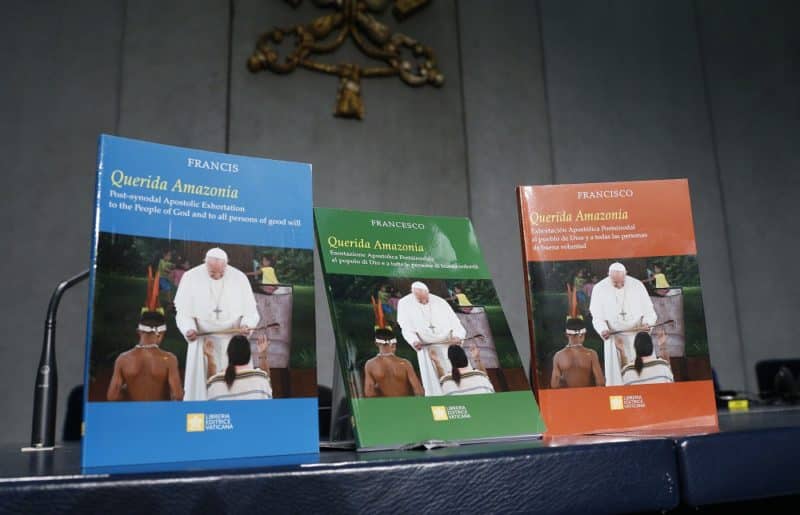A New Zealand theologian has said that what Pope Francis has done with his post-synodal exhortation on the Amazon region is unexpected, but it fits with what the Pontiff wants from the synod process.
Last month, Pope Francis released Querida Amazonia (Beloved Amazon), which, to the disappointment of some in the Church, did not address ordaining proven married men as priests.
Fr Mervyn Duffy, SM, theology lecturer at Te Kupenga-Catholic Theological College, told NZ Catholic that many people hoped Pope Francis would respond to the requests in the final document of the Amazon synod last October with a strong assertion of papal authority.
Fr Duffy said that, in the final synod document — The Amazon: New Paths for the Church and for an Integral Ecology — there were calls such as “we ask that an instituted ministry of ‘women community leadership’ be created and recognised” and this was linked to the issue of deaconesses. There was another call in that document that “we propose that criteria and dispositions be established by the competent authority, within the framework of Lumen Gentium 26, to ordain as priests suitable and respected men of the community with a legitimately constituted and stable family”.
“Given the significance of these requests,” Fr Duffy said, “there are voices in the Church who wanted the bishops of the synod knocked back, and others who wanted their requests to be immediately granted and widened in scope.”
Fr Duffy said that what these people — and he himself — did not expect was a document that begins like this: “I [Pope Francis] will not go into all of the issues treated at length in the final document. Nor do I claim to replace that text or to duplicate it. I wish merely to propose a brief framework for reflection that can apply concretely to the life of the Amazon region a synthesis of some of the larger concerns that I have expressed in earlier documents, and that can help guide us to a harmonious, creative and fruitful reception of the entire synodal process.”
Fr Duffy said that the Pope has not resolved the matters raised.
“He wants the work of that synod to continue in the Church.
“He wants all the voices to be heard and for other bodies in the Church to weigh in on the issues. He wants ‘reception’ of the Amazon synod. Rather than exercising papal authority to make a decision on these complex and fraught matters, he is leading us into a longer process with wider engagement. This is much less tidy, but the Pope hopes it will be more harmonious, creative and fruitful.”
“We are in for an interesting time within the Church,” Fr Duffy said.
In Querida Amazonia, the Pope wrote that, at the same time as he proposed his “synthesis”, he wanted to “officially present” the synod final document, which he encouraged everyone to “read in full”.
Commentators have argued about what “officially present” means, and where the document fits into the Church’s magisterium.
According to a report on LifeSiteNews, at a press conference following the release of the exhortation, a journalist asked how the final document should be understood in light of Pope Francis’s 2018 apostolic constitution Episcopalis Communio, n. 18, which states: “If it is expressly approved by the Roman Pontiff, the final document participates in the ordinary magisterium of the Successor of Peter.”
Cardinal Lorenzo Baldisseri, secretary general of the Synod of Bishops, clarified that Querida Amazonia “does not talk about approval of the final document”.
Rather, it is about “presentation” and is therefore “not magisterial”.
Cardinal Michael Czerny, who served as special secretary for the Amazon Synod, told media that, “apart from formal magisterial authority”, the Pope’s “official presentation and encouragement” confer on the final document “a certain moral authority”.
“To ignore [the final document] would be a lack of obedience to the Holy Father’s legitimate authority, while to find one or other point difficult could not be considered a lack of faith,” he said.

Reader Interactions